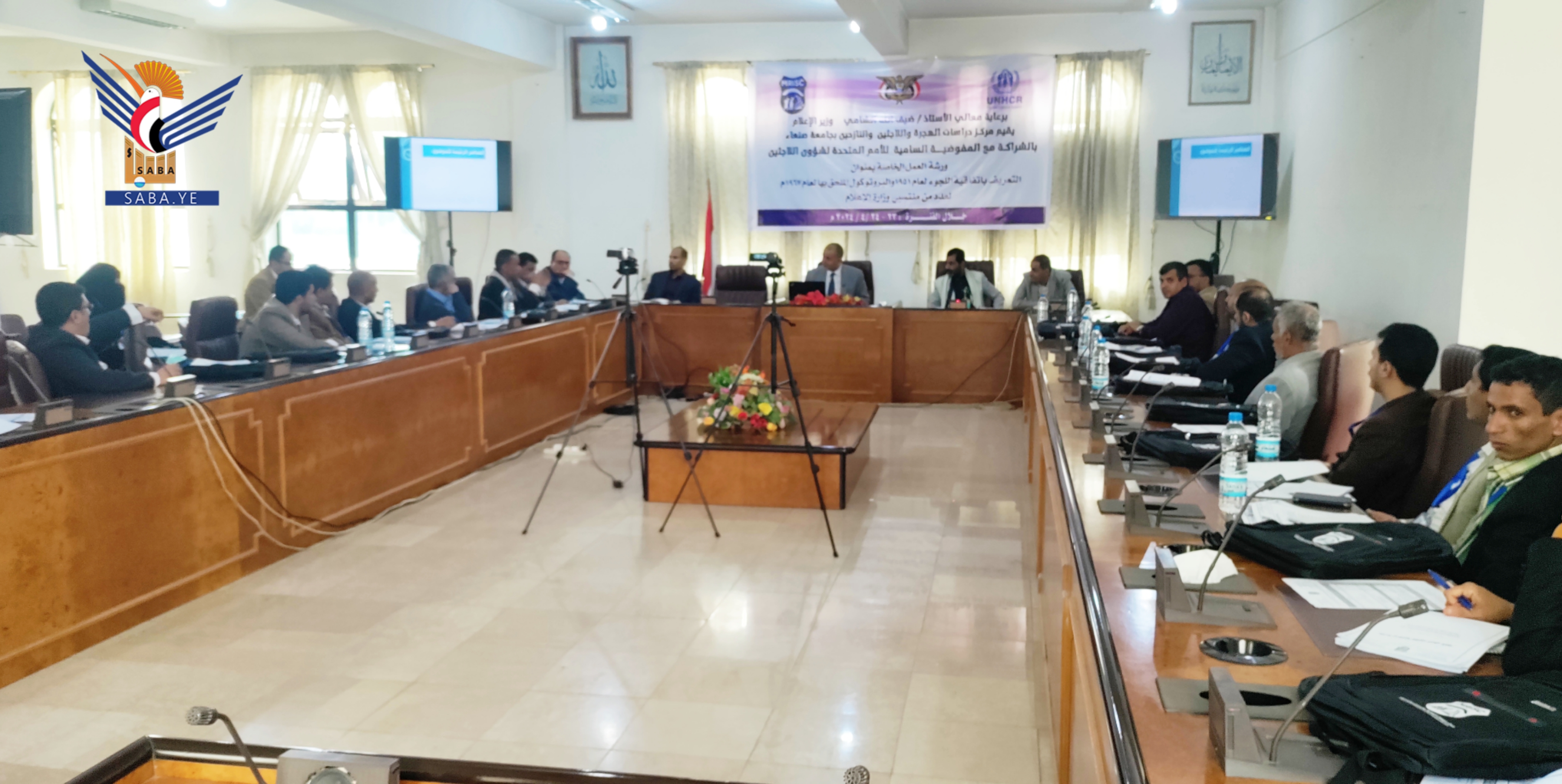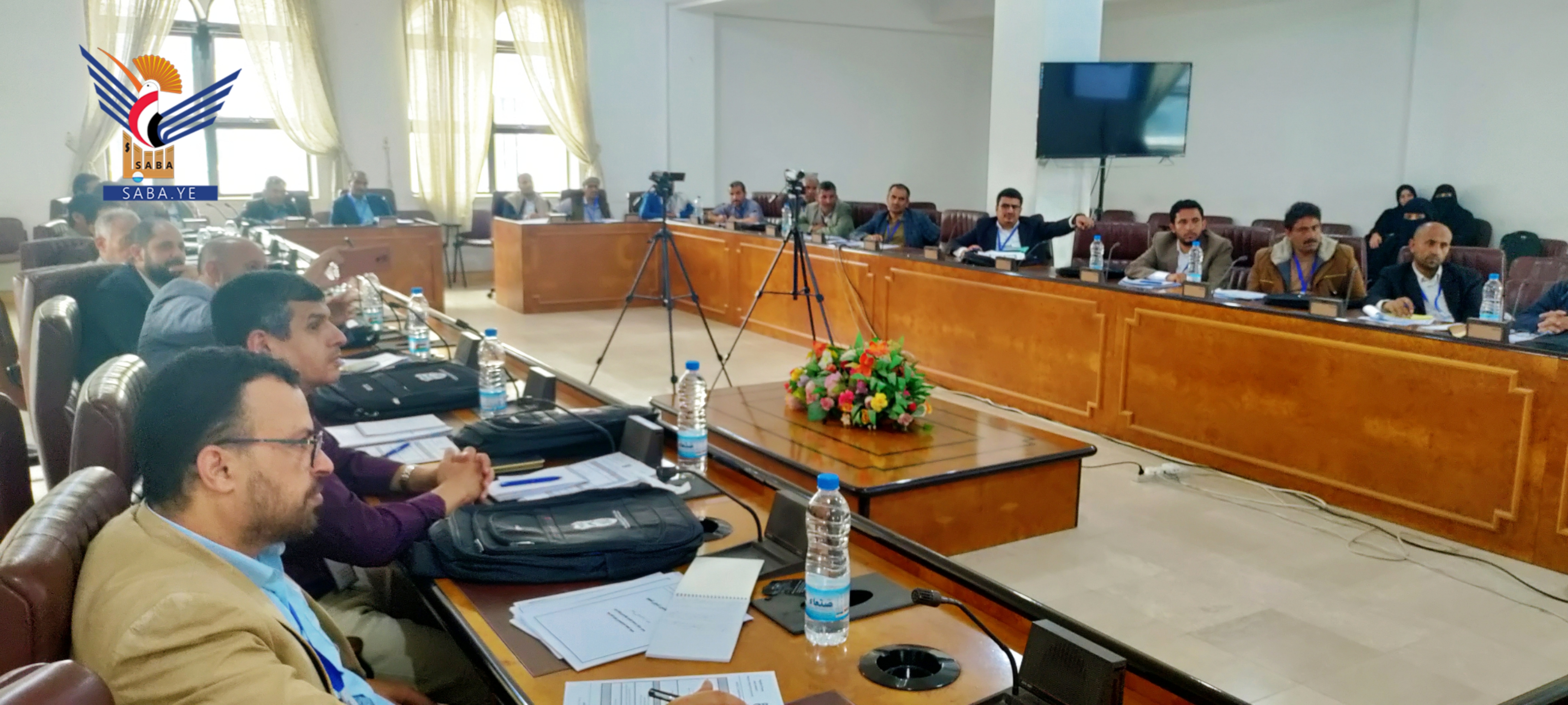
SANA'A April 23. 2024 (Saba) - A training course began on Tuesday in Sana'a to introduce the 1951 Asylum Convention and its 1967 Protocol, organized by the Center for Migration and Refugee Studies at Sana'a University in partnership with the United Nations High Commissioner for Refugees (UNHCR).
The two-day course aims to introduce 30 participants from the media to the international refugee system, the mandate of the Office of the High Commissioner for Refugees and the rights of refugees in accordance with the 1951 Convention, knowledge about asylum and international refugee law, the rights of refugees in Islam, legislation and laws, and the role of the media in dealing with refugee issues.
In the opening, the Undersecretary of the Ministry of Information, Yahya Homaid, stressed the importance of introducing laws and legislation related to refugees to enable media professionals to shed light on their situation and issues, as well as providing all their information and making it available to the media and those interested in preparing press reports related to asylum and refugee issues.
In his paper entitled "The Importance of International Asylum Law", the Director of the Center for Migration and Refugee Studies at the University, Dean of the Diplomatic Institute at the Ministry of Foreign Affairs, Dr. Ahmed Al-Emad, stressed the importance of introducing media professionals and journalists to the contents of international refugee law, refugee issues, their legal rights and their humanitarian needs, and pointed out that Yemen is the only country in the Arabian Peninsula that has signed the UNHCR Convention, granting refugees human rights and protection.
Dr. Al-Emad stressed that the development of the international community in establishing international institutions entrusted with the task of coordinating and promoting refugee protection, which today UNHCR has become mainly undertaking, and thus expanding the development of more international legal instruments on refugee protection and working to address imbalances.
He touched on the stages of development of asylum in ancient, modern and contemporary history, passing through asylum with the emergence of the League of Nations in 1920 and the establishment of totalitarian and dictatorial regimes in a number of European countries and the Soviet Union, which caused the displacement and displacement of opponents of those regimes, as well as the impact of the Balfour Declaration of 1917, which led to the displacement of Palestinians by the Zionist movement.
He pointed out that the Ministry of Foreign Affairs chairs the National Committee for Refugees and works to coordinate with government agencies and the High Commissioner to face the challenges faced by refugees and facilitate their asylum in accordance with international standards, despite the difficult circumstances that Yemen is going through as a result of the aggression and blockade.
The Director of the Office of the Minister of Information, Mohammed Al-Saafani, presented a working paper entitled "The Role of the Media in Asylum Issues", pointing to the importance of strengthening the partnership with UNHCR to conduct awareness media programs and campaigns that shed light on asylum and refugee issues.
He pointed to the role of the concerned government agencies, the media and the UNHCR to introduce the rights and duties of refugees and organize awareness campaigns and introductory courses on refugee rights and issues.
Al-Saafani stressed the need for the Office of the High Commissioner to take a serious stance towards the killings, deportation and torture of refugees on the Saudi-Yemeni border by the Saudi border guard forces, and the need to inform local and international public opinion about this to pressure the Saudi regime to stop these crimes, hold it accountable and limit their continuation.
He pointed to the need for UNHCR to assume its responsibilities as a result of these violations and address the international community with statements regarding these crimes against humanity, as well as its role towards refugees in Yemen in coordination with the concerned government agencies and in light of real data and information, and to study and address the repercussions and effects of the large influx of refugees on the security, economic, social and health situation in Yemen.
Al-Saafani expressed the hope that more workshops will be organized that will benefit workers in media and press institutions and outlets, enabling them to prepare media materials on refugee and refugee issues and highlight the role and activities of UNHCR, aspects of support and how the media deals with their humanitarian issues and stories.
For his part, the official of the Refugee Protection Department at the UNHCR Office in Yemen, Armen, explained that the work of the UNHCR is humanitarian and social, which requires activating the role of the various media in shaping public opinion on refugees and calling on governments and communities to address issues related to displacement.
He valued the role of the Yemeni authorities and people in hosting and protecting refugees and providing support to people fleeing violence and individual persecution.
E.M
resource : Saba

